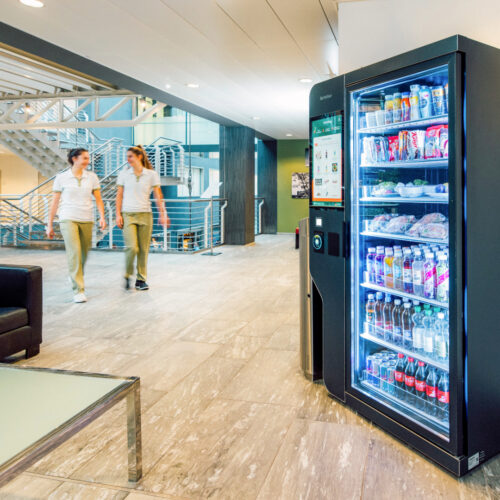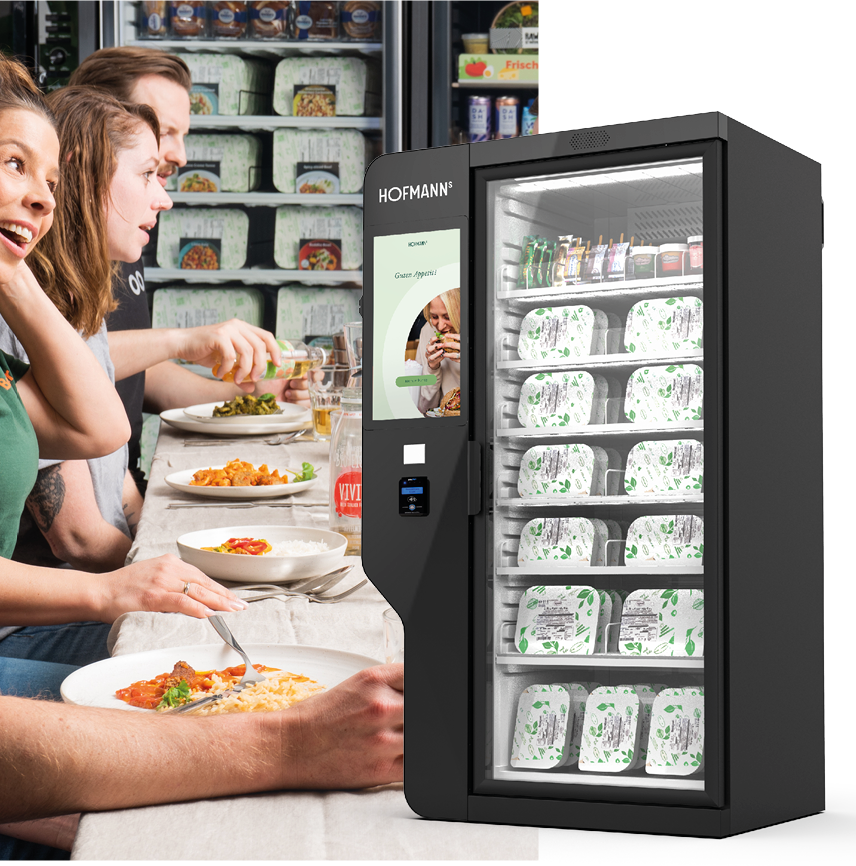Boostbar is is on a mission to make its vending operations sustainable
Boostbar’s Bold Journey: Leading the way for a sustainable future
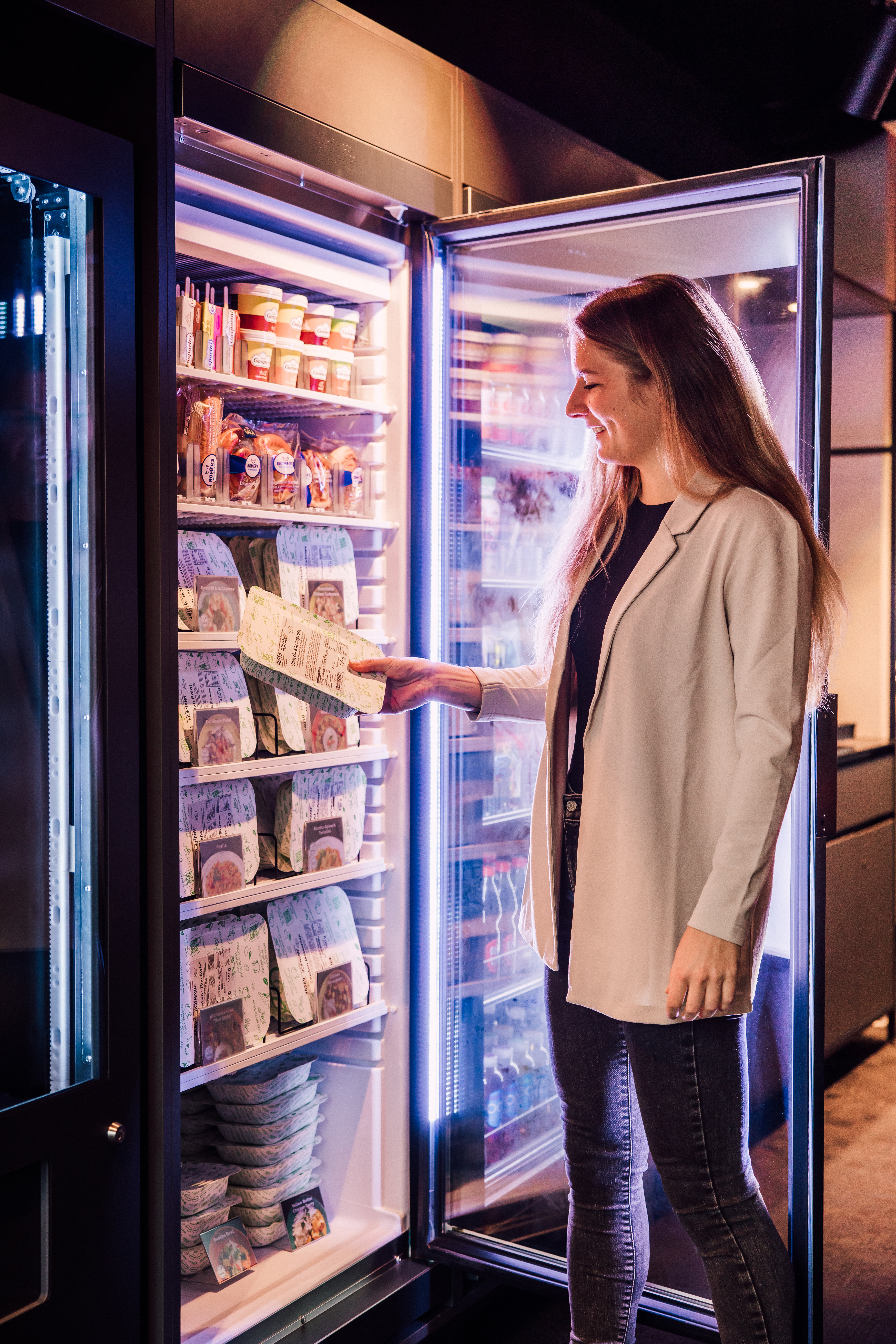
Boostbar is a brand of Boost inc, and the fastest growing vending operator in Switzerland.
With over 200 customers and 1000 points of sale, well-known companies such as Swisscom, Siemens and Geberit have chosen Boostbar concepts for their workplace.
The main drivers for such trusting partnerships are down to Boostbar’s ability to not only provide high-quality food concepts and exceptional customer service, but their machines offer consumers a vibrant and engaging user experience, thanks to their large digital displays for intuitive selection and ordering and their ‘cloud-based’ software for real-time monitoring and evaluation of sales. They also keep sustainability at the forefront of everything they do, which ticks a lot of boxes for sustainable-conscious companies.
The Food Standards Agency (FSA) wrote a report earlier this year and gave several tips about how to make vending more sustainable, including promoting recycling, using local stock and suppliers and guidance for making fresh food more healthy, including offering less red meat options and more wholegrain and vegetarian options.
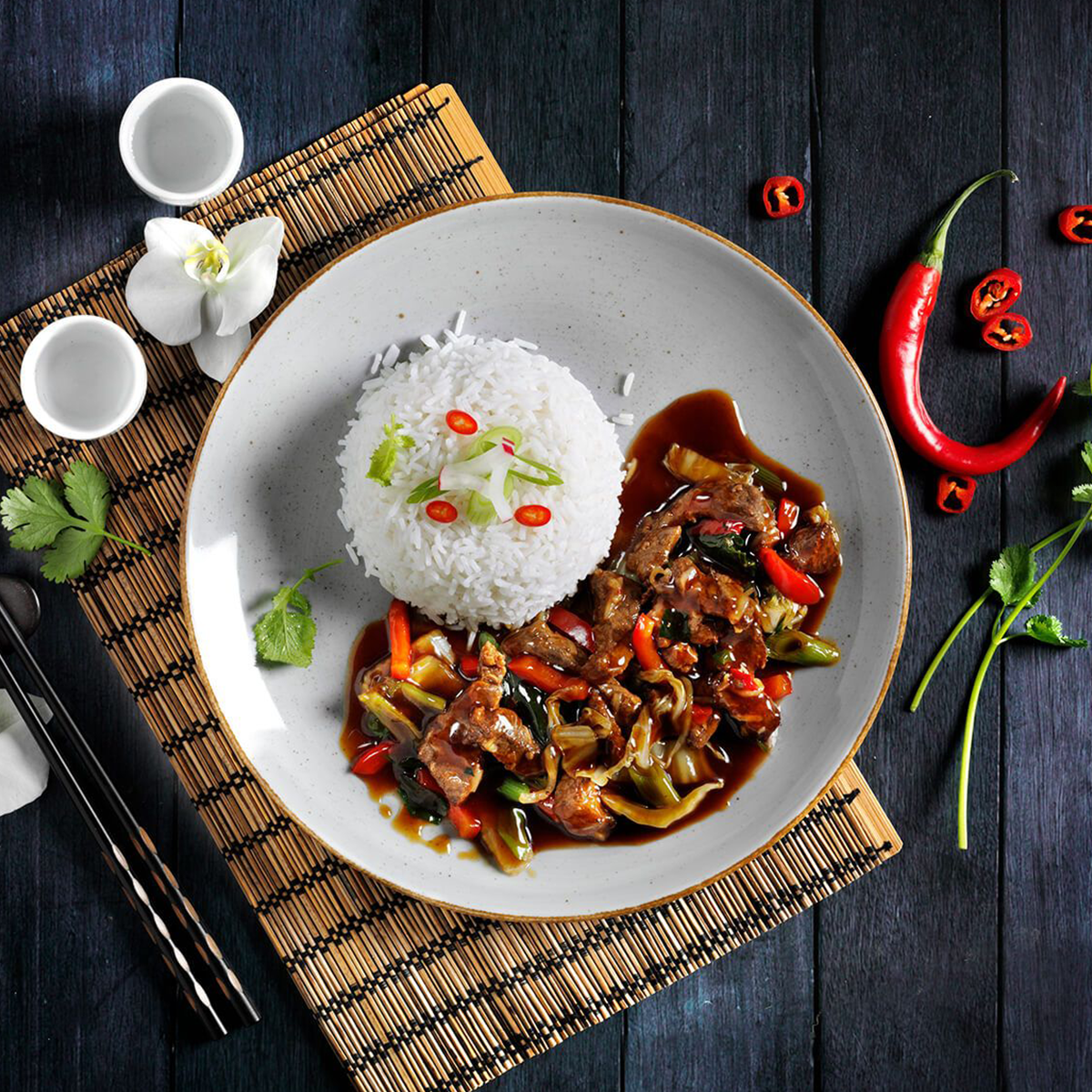
Interestingly, the report only focused on making vending more sustainable in the fresh food market. This is largely due to the fact that the environmental impact of providing frozen food over fresh is not widely publicised. Boostbar has made it their mission to prove that frozen meals are the better choice for more sustainable, cost-effective living. They are not only cheaper, as they produce less waste, but they are also a healthy alternative.
The facts behind sustainable choices
Striving for 0% food waste and a reduction in CO2 emissions
As far as food waste is concerned, frozen meals account for less than 2%, while fresh food alternatives generate 30% food waste on average. Frozen meals only need to be refilled after consumption, while fresh food refrigerators need to be visited daily or several times a week, due to lower shelf life and extended expiry dates. This means that merchandising frozen meals requires up to 5x fewer trips and on-site visits. This reduces CO2 emissions by a staggering 80% and saves 800 kg of CO2 per year and device.
Furthermore, Boostbar operates using a short supply chain, relying on local producers and suppliers, which means that the journey needs are reduced by up to 80%.
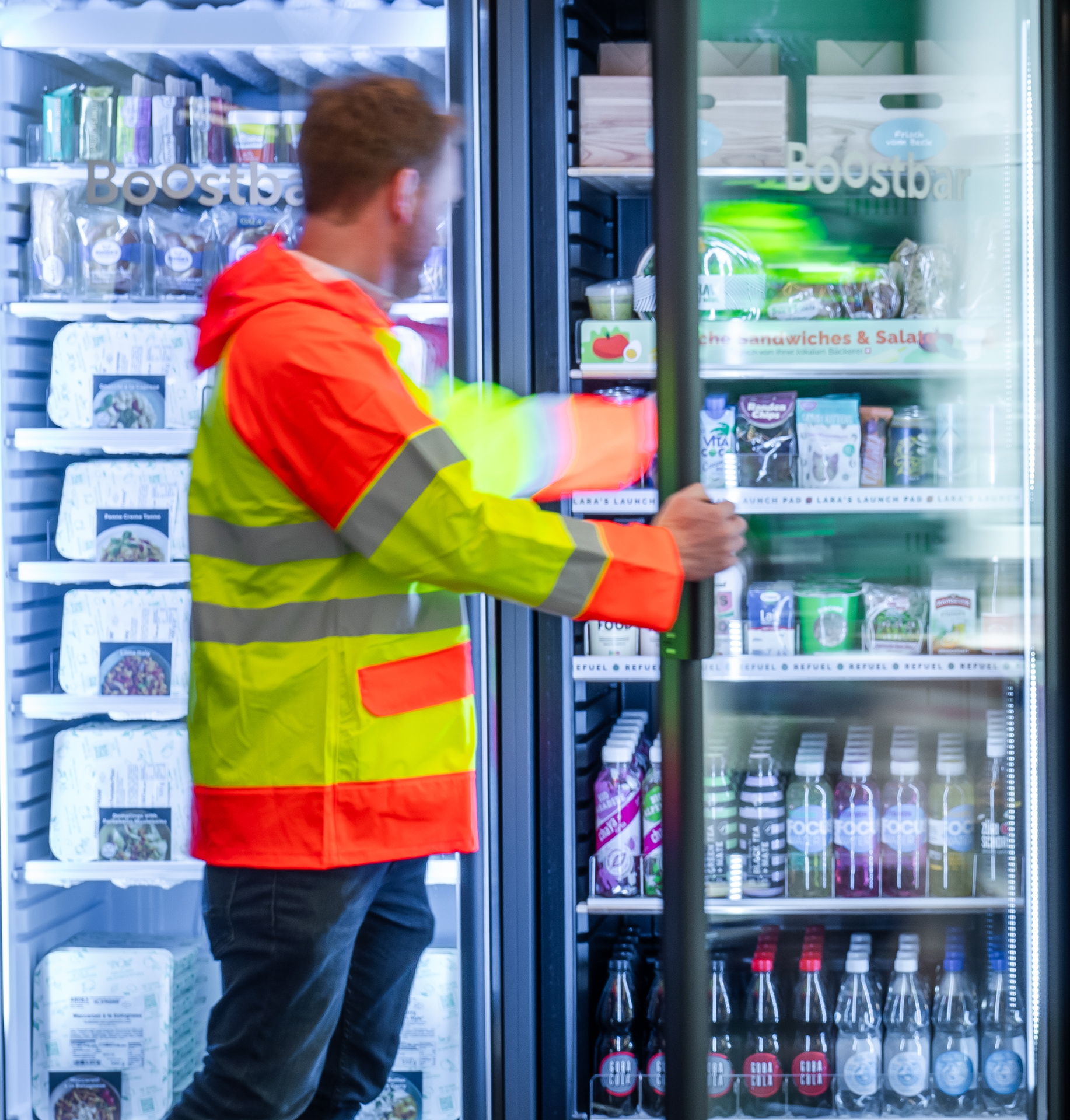
Boostbar also leverages data insights to optimise management and minimise waste by carefully optimising route planning, with a strategic use of promotional media across their devices to further encourage consumption and reduce waste.
Healthier Products
Frozen meals have ditched the high sodium and preservatives for balanced, nutrient-rich options. Advances in freezing technology mean that frozen meals are also very nutritious because the vitamins are optimally preserved by shock freezing the freshly cooked food.
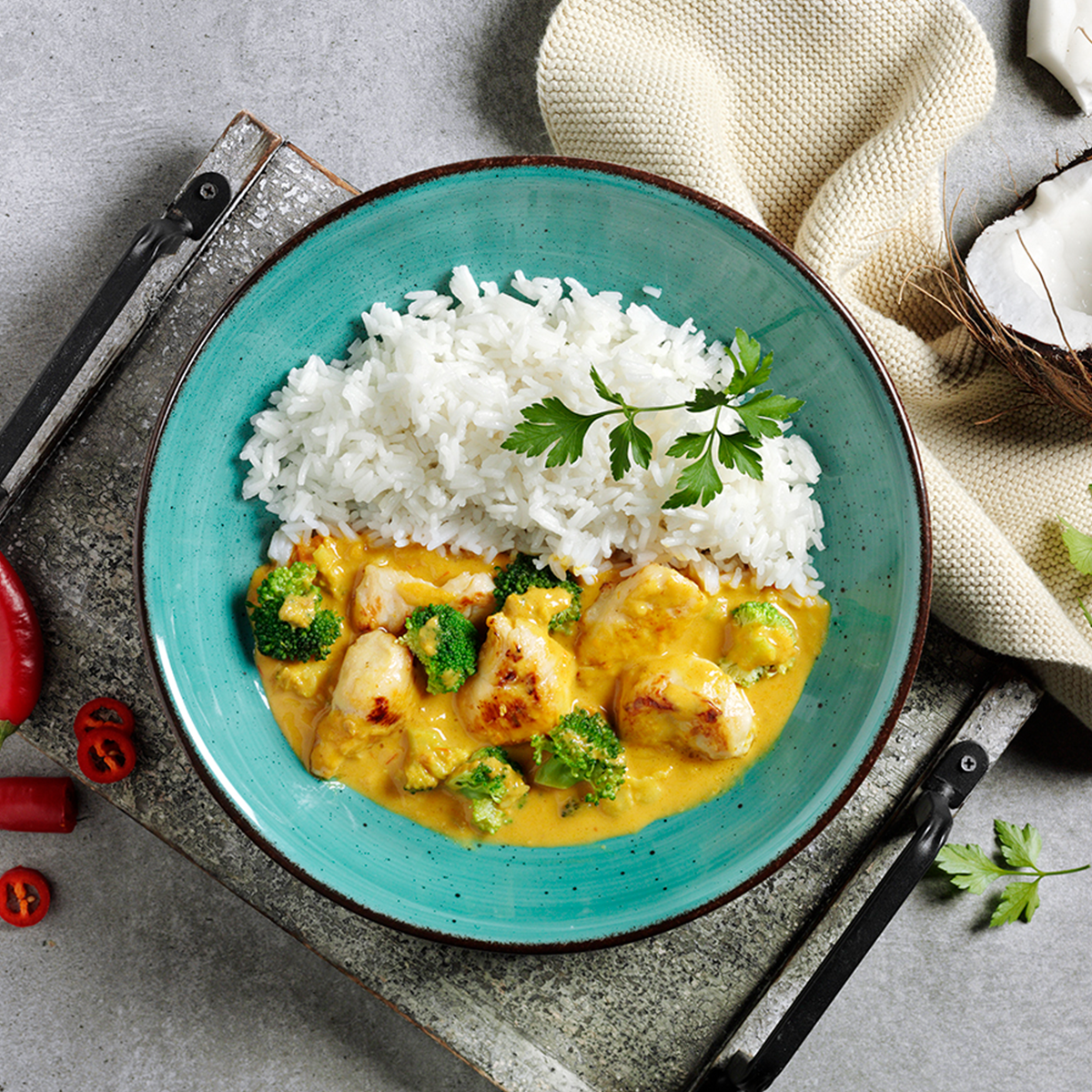
The quick freezing process stops cell activity and microbial growth, preserving important nutrients, taste and texture. Also, over 30% of the range is vegan and vegetarian and doesn’t contain palm oil.
Eco-friendly packaging
The frozen meals Boostbar offers are plastic-free and use highly innovative BIOPAP packaging, which is 100% paper and fully compostable.
Conclusion
In an era where sustainability is no longer optional but essential, Boostbar stands out as an innovator in Switzerland. By combining nutritious frozen food solutions, zero-waste principles, and a commitment to local sourcing, Boostbar has not only redefined vending but also set a new standard for environmental responsibility. Recognized by the Swiss Federal Office for the Environment for their impactful efforts, Boostbar continues to demonstrate that convenience and sustainability can go hand in hand. As businesses and consumers alike strive for greener solutions, Boostbar is leading the way, proving that tackling sustainability head-on is not just good for the planet—it’s good for business too.
